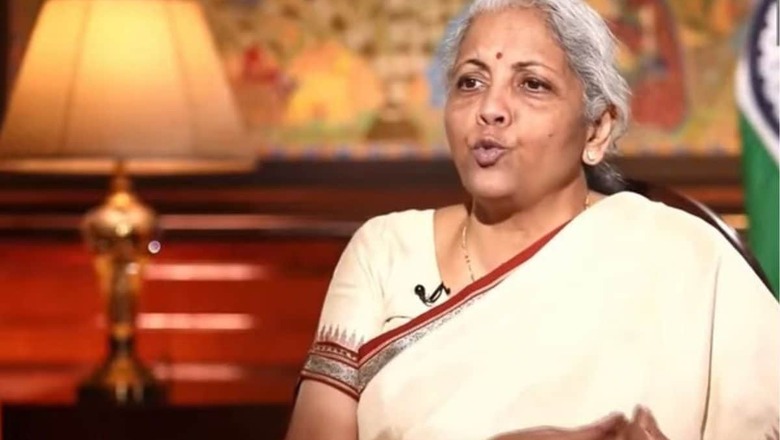
views
Finance minister Nirmala Sitharaman on Friday said work requirements are changing due to the introduction of artificial intelligence, which is now a big factor in the job market. She said global slowdown has impacted employment in the country, but there is job creation in the middle and lower orders.
In an exclusive interview with Network18 Group editor-in-chief Rahul Joshi, Sitharaman said global slowdown along with the introduction of AI has impacted jobs.
“Because of the way in which AI is coming through, the kind of job requirements are also changing. People with old skill sets are expected to have newer skill sets for tasks that did not exist until now, so there is a lot of calibration required in understanding this,” she said.
Asked about employment generation indicators in terms of muted campus recruitment and lower salaries, the finance minister said the focus is repeatedly on the formal economy. “I’m not denying its role. College recruitments, IIM-like campuses are important, but equally jobs getting created in the middle and lower order are not getting counted at all,” she said.
The minister further said a fairer and exhaustive picture of India’s employment, both in the formal and non-formal areas, should have a wider base supported by more data for an informed discussion. “I would look at the way in which banks and their credit is happening in small and medium businesses, the new companies that have got registered, which is a data I have put out from the MCA. The number of new companies are certainly not people being recruited for jobs. They are people investing money, believing in their skills, registering a company and probably giving jobs for others. Why would new companies get registered in a bigger number than before if employment is not being offered?” she asked.
She also said there is a need to recognise that there has been a shift in the way employment is panning out, affected by factors like migration and work-from-home. “Let us recognise that migration is now looking at redefining itself in a way. Many people who went back to their villages with some skills acquired are wondering if they can continue being there and utilising and benefiting from the skills that they’ve acquired. Industries, too, are allowing a lot of work from home, and many who are avoiding travel are staying back. So, the shift will have to be recognised,” she said.
The minister added: “But, that’s not to say people are staying back home without work or staying back and working from there, with large companies being established everywhere else.”
Sitharaman presented the interim budget in Parliament on Thursday (February 1), where she said the size of Budget 2024-25 has increased 6.1 percent to Rs 47.66 lakh crore because of rise in expenditure and higher allocation for capital expenditure and social sector schemes.
In her budget speech, she stressed that the impact of all-round development is discernible in all sectors. “There is macro-economic stability, including in the external sector. Investments are robust. The economy is doing well. People are living better and earning better, with even greater aspirations for the future,” she said, adding that average real income of people has increased 50 percent.
The finance minister announced a Rs 11.11 lakh crore spending on infrastructure and vowed to continue reforms as she resisted resorting to populist measures in the Narendra Modi-led government’s last budget before the Lok Sabha elections in April-May.
(With PTI inputs)


















Comments
0 comment